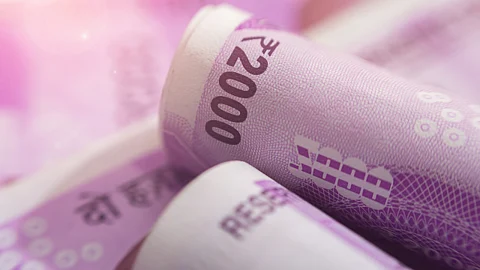
- News
- Women
- Magazine
- IndustryIndustry
- InsightsInsights
- Success Stories
- PublishPublish
- ContactContact
- Media KitMedia Kit

Withdrawal of Rs 2000 notes by RBI
The announcement made by the Reserve Bank of India on 19th of May 2023 regarding the withdrawal of ₹2000 denomination banknotes from circulation triggered memories of a similar campaign done in 2016 for many people.
Even with the Government of India promoting digitalization, a majority of the Indian economy is still dependent on cash transactions.
The Indian economy is highly reliant on rural or informal workers, from whom many don't even own a bank account. In such a scenario, scraping off the highest denomination banknote might not be a move welcomed by them.
RBI introduced the ₹2000 denomination banknote in November 2016 under Section 24(1) of the RBI Act, 1934, mainly to meet the currency requirement of the economy expeditiously after the legal tender status of all ₹500 and ₹1000 banknotes were withdrawn.
Once banknotes in other denominations became available in adequate quantities, the printing of ₹2000 banknotes was stopped in 2018-19.
Also, the majority, about 89% of the ₹2000 denomination banknotes, were issued by the RBI before March 2017 and thus are at the end of their estimated life span of 4-5 years.
There is an adequate stock of banknotes in other denominations to meet the currency requirement of the public, and the ₹2000 denomination banknote is not commonly used for transactions.
RBI, in a circular issued on May 19, 2023, quotes, “Given the above, and pursuance of the “Clean Note Policy” of the Reserve Bank of India, it has been decided to withdraw the ₹2000 denomination banknotes from circulation.”
In their circular, RBI has advised all banks to stop issuing ₹2000 denomination banknotes to the public with immediate effect. Although the ₹2000 denomination banknotes will be withdrawn, it remain a legal tender, and the public can still use the notes for their transaction.
However, the RBI also advised people to deposit and/or exchange these banknotes on or before September 30, 2023.
However, the RBI has yet to clarify the status of these banknotes post the last date of the deposit and exchange window, which is September 30, 2023.
The 2000 note exchange date starts on May 23, 2023. From May 23, people can approach bank branches to deposit or exchange their ₹2000 denomination banknotes.
To make the exchange and deposit of ₹2000 banknotes as convenient for the public as possible, the RBI has advised all bank branches to provide the same.
The facility will be available at all banks until September 30, 2023. The same facility for the exchange and deposit of these banknotes will be available at all the 19 Regional Offices of RBI that have Issue Departments.
The RBI has advised people to “approach bank branches for deposit and/ or exchange” of these banknotes. “The facility for deposit into accounts and exchange for Rs 2000 banknotes will be available at all banks until September 30, 2023,” the RBI has said.
The exchange facility will also be available until September 30 at 19 RBI Regional Offices that have Issue Departments.
An individual doesn't need to have a bank account with any bank to get their ₹ 2000 denomination banknotes exchanged, but for deposit 2000 note deposits, it is mandatory to fulfill all the requirements of the bank for regular deposits.
Now when it comes to exchanging the ₹ 2000 banknotes, people are wondering what is the maximum limit for 2000 rs note. RBI has set a limit on how much you can exchange at a time.
The 2000 note exchange limit, on any day, is rs 20000. Individuals can exchange ₹ 2000 banknotes up to a limit of ₹ 20,000, but for a business correspondent, the daily limit is ₹ 4000 per day for an account holder.
For deposits, the RBI said, “Deposit into bank accounts can be made in the usual manner, that is, without restrictions and subject to extant instructions and other applicable statutory provisions.”
There have been some claims that for a rs 2000 note deposit, people need to fill out some form; however, the biggest bank in the country, SBI, has clarified that there is no need for a 2000 note exchange form, nor is an ID required for the same.
In 2016, the government of India announced the withdrawal of two of the highest denomination banknotes, Rs 500 and Rs 1000, without any forewarning to expose people who held huge sums of money that were unaccounted for.
But the sudden demonetization left the entire country in a hysteria, with kilometers-long queues at ATMs, post offices, and banks.
It is highly unlikely that the same scenario will be the case this time, as rs 500, rs 200, and other lesser denominations banknotes will still be in use, and only the rs 2000 notes will be withdrawn, that too with them being the legal tender.
RBI, the central bank of India, in a circular published on May 19, 2023, said that rs 2000 denomination notes would be withdrawn from the legal market completely.
The process od exchanging or depositing the notes will be available in every bank branch across the country as well as the 19 regional offices of RBI, from May 23, 2023, to September 30, 2023. However, the notes will continue to remain legal tender.
Follow us on Google News
